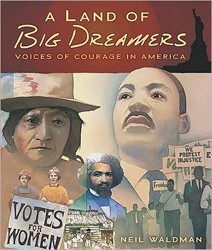By
– August 30, 2011
Anya’s War is a first person account of a 14-year-old Jewish girl’s adventures and misadventures in acclimating to her new life in Shanghai in 1937. Her upper class Jewish family has fled there from Odessa, Russia, where Jews are being persecuted under Communism. Anya Rosen (her father has just shortened the family name from Rosengarten) narrates the events around her 14th birthday when, riding her new bicycle home with her purchases from the kosher butcher, she hears a mewing sound that turns out to be a crying baby. She finds and rescues the Chinese infant girl she hears crying in the bushes. The baby has been abandoned because she is a girl and unwanted by a society that values males over females. (This event is based on the factual account of the author Andrea Alban’s grandfather, who lived in Shanghai at that time and brought home such an abandoned infant girl.) We learn much about Chinese culture in this book, and much about Jewish culture and family life. The Rosens — Anya, Georgi (her younger brother) Mama, Papa, Babushka and Dedushka — celebrate Shabbat faithfully in elegant Odessa style. Anya expresses a very personal and emotional experience of Shabbat:
Anya lit hers last, one candle for shamor, observance, and one for zachor, remembrance. It was time for her second neshamah to enter her body. Her skin tingled with the feeling of the additional soul slipping in. This extra soul might distract her from her worries about the Japanese and Chinese fighting for control of Shanghai.
Anya worries about the big things: war, infanticide, injustice to females in China, a bombing that injures her brother, and Amelia Earhart, whose plane is lost. She also worries about personal things: a boy she likes, her looks, her relationship with her mother, father, brother, Babushka and Dedushka. She has a close and trusting relationship with Li Mei, the family’s 17-year-old Chinese cook. Anya writes in a Book of Moons (diary) and opens her personal and political world to young readers. Though fictionalized, this account of a little known period of Jewish, Russian, and Chinese history fills in a blank that most don’t know. Boys and the male viewpoint are well represented in this book, so it is not a book for girls only. Ages 10 and up.
Anya lit hers last, one candle for shamor, observance, and one for zachor, remembrance. It was time for her second neshamah to enter her body. Her skin tingled with the feeling of the additional soul slipping in. This extra soul might distract her from her worries about the Japanese and Chinese fighting for control of Shanghai.
Anya worries about the big things: war, infanticide, injustice to females in China, a bombing that injures her brother, and Amelia Earhart, whose plane is lost. She also worries about personal things: a boy she likes, her looks, her relationship with her mother, father, brother, Babushka and Dedushka. She has a close and trusting relationship with Li Mei, the family’s 17-year-old Chinese cook. Anya writes in a Book of Moons (diary) and opens her personal and political world to young readers. Though fictionalized, this account of a little known period of Jewish, Russian, and Chinese history fills in a blank that most don’t know. Boys and the male viewpoint are well represented in this book, so it is not a book for girls only. Ages 10 and up.
Naomi Morse managed a public library children’s room in Montgomery County, Maryland for many years, and then worked as head librarian at the Charles E. Smith Jewish Day School Lower School in Rockville, Maryland. She has served on AJL’s Sydney Taylor Committee, and last year (2008) was a member of ALA’s Caldecott Committee. She is an independent book reviewer.





